Four essays about Israel and Gaza
On Melanie Klein, Palestinian support for Hamas, the water crisis in Gaza, and South Africa's petition to the ICJ.
Shlomo of Turtle Island
Does Hamas represent the Palestinian people?
Thirst
South Africa is in the house
SHLOMO OF TURTLE ISLAND
People succumb with unusual frequency to black-and-white, all-or-nothing thinking where Israel and Palestinians are concerned. Even people who aren’t ordinarily crude in their thought are prone to wildly idealizing Israelis while wildly devaluing Palestinians, or vice-versa.
Strangely, I’ve seen no small number of people switch sides—and then hold their new views as passionately as the old ones. Consider this young man, for example, Shlomo by name, who grew up in the United States and was only recently a “Zionist settler” who believed “all Palestinians were terrorists.” As you’ll see, he’s changed his mind about being a Zionist settler. He hasn’t changed his mind about Palestinians, but now he thinks being a terrorist is a noble thing:
To be sure, he’s an extreme example. He’s obviously not playing with a full deck. But that’s actually my point. He’s not that different, in his psychological structure, from normal people in public and ordinary life who wildly idealize Israelis and devalue Palestinians or vice-versa.
These extremes of idealization and devaluation are signs of psychological regression. Something about Israel—or Palestine, as the case may be—seems to cause it. Why, I’m not exactly sure. Adam Garfinkle has written a book about it, if you’re looking for ideas. The point is that assuredly this does happen, and the tendency infects even the otherwise levelheaded.
I once asked Peter Robinson—who as a White House speechwriter drafted the speech known for the words, “Mr. Gorbachev, tear down this wall”—how he would write a speech about Israel.
He thought about it. “I would begin, ‘Israel is a normal country,’” he said. That was an insightful response.
Watching videos of Shlomo (with horrified fascination, unable to stop), I thought of the psychoanalyst Melanie Klein and her object relations theory, which she developed from observation:
… Working with children, Melanie Klein found herself confronted with partial impulses towards objects, toys, and the person they represented. She was impressed by how pure these relations were, either wholly hating or wholly loving. She noticed, too, that the objects were related to as if they had similar single-minded attitudes and impulses towards the ego (Klein, 1929). Some objects were feared and hated as terrifyingly violent and punitive, and some were loved for their equal benevolence.
Klein called this early development stage the paranoid-schizoid position:
Rooted in primal phantasy, Klein’s infant is far darker and more persecuted than the Freudian pleasure-seeking narcissist. … Klein believed that ego formation begins from the moment of birth when the newborn attempts to relate to the world through part-objects—thus the object “mother’ becomes a part-object “breast.” Central to object relations theory is the notion of splitting, which can be described as the mental separation of objects into “good” and “bad” parts and the subsequent repression of the “bad,” or anxiety-provoking, aspects (Klein, 1932; 1935).
Infants first experience splitting in their relationship with the primary caregiver: The caregiver is “good” when all the infant’s needs are satisfied and “bad” when they are not. Splitting occurs when a person (especially a child) can’t keep two contradictory thoughts or feelings in mind at the same time, and therefore keeps the conflicting feelings apart and focuses on just one of them. … The baby, in his phantasy, splits the mother’s breast into the Good Breast which feeds and nourishes, and the Bad Breast which withholds and persecutes the baby.
As the baby grows older—and to the extent that all goes well in childhood—he or she integrates the good and bad objects into a coherent whole: a person. The child comes to understand that other people have needs of their own. But aspects of the depressive-schizoid position persist in everyone, Klein held, particularly in those who suffer childhood traumas that interfere with this process of integration.
Under psychological strain, Klein says, we’re all prone to reverting to the depressive-schizoid position. You can see immediately that Shlomo is under psychological strain (shouting, disorganized speech, agitation, and no small amount of aggression). You can also see that in his haunted psyche, Israelis are the bad object. We have no videos of the way he spoke about Palestinians before he “got out of Zionism,” as he puts it in another video, but I’ll bet it was the same way.
You can also see that the word “Israeli” does not, to Shlomo, denote 9,842,000 human beings who live between the Jordan River and the Mediterranean and among whom are every variety of infinitely complex soul: a pianist in Haifa who gives up concertizing because he can’t conquer his stage fright, a gym manager in Tel Aviv who thinks grain-fed beef is nature’s pharmacy, or his girlfriend, who hides her Xanax in a box of breath mints because nature’s pharmacy doesn’t do shit when when those air-raid sirens go off. They’re not real. It’s all one bad object. Neither are the two-million odd people in Gaza: They’re one big good object.
Note the way Shlomo’s speaking. He’s reciting doctrine like the words of a prayer:
Barukh ata Adonai Eloheinu ... Zionism is Nazism … Internalized colonialism …. replicating the master’s tools when building the master’s house … power-over paradigms … the way patriarchy harmed me … Turtle Island … racial capitalism … Palestine will be free! … colonial conquest … the illegitimate Zionist settler colony … you’re a barrier to my liberation … you’re causing me harm … I am not co-signing your colonial fiction … we cannot sit here when there are bombs being dropped on Gaza melekh ha’olam ...
The pathology here is unusually obvious: A nice American yeshiva boy went to Israel, took a day trip to the West Bank, and came back delivering online encomiums to the al-Qassam Brigades. But the same pathology is at work, albeit in subtler form, in many people.
DOES HAMAS REPRESENT THE PALESTINIAN PEOPLE?
A few weeks ago, our reader Thomas Gregg asked me this question:
I was talking with my wife this evening, the topic being Hamas, Israel, the Gaza crisis, etc. Jackie told me that she’d been talking to a coworker and a friend, both American Jewish women, who of course denounced what Hamas has done, but drew a distinction between those despicable terrorists and the Palestinian people. My immediate reaction to this was strongly negative: I’ve seen no evidence that the Palestinians disapprove of such atrocities; rather the reverse. Still, I’d appreciate a second opinion. So what do you say? Are these well-meaning liberal American Jewish women right or wrong? Or is there some middle ground between their faith and my skepticism?
My answer exceeded Substack’s word limit for comments, so I put the question in a file marked, “finish later.” Other things came up, and I never finished it. But it’s an important question that deserves a thoughtful response.
The answer to this question has massive implications. In 2022, according to the Palestinian Central Bureau of Statistics,1 there were 14.3 million Palestinians in the world, of whom 3.19 million lived in the West Bank, 2.17 million in Gaza, and the rest in the diaspora. If all 14.3 million of them—or the majority, or even a significant minority—share Hamas’s ideology, talk of a two-state solution is absurd.2 It means that Palestinians everywhere are a massive security risk. Israel’s critics commonly say that Gaza is “an open-air prison,” but if everyone there shares Hamas’s ideology, that’s a good thing: The only problem is the prison’s not secure enough.
There’s a corollary implication. If everyone in Gaza shares Hamas’s view that killing, raping, and mutilating Jews is a divine commandment and a holy act, I for one won’t waste a tear when they die. I wouldn’t wish death on a random Palestinian shopkeeper because he holds odious views—I don’t believe death is the appropriate penalty for “believing something odious”—but if that shopkeeper yearns to see my family butchered before my eyes while he bludgeons me to death with a rake and then sets my corpse on fire? Fuck him. There’s enough sorrow and suffering in the world for me to weep over. I don’t need to weep for him.
It’s common to aver, as Jackie’s coworker did, that of course Palestinians don’t share Hamas’s ideology. Biden, like other Western leaders and media outlets, has said repeatedly that Hamas doesn’t represent the Palestinian people. Recently, in a non-binding resolution that passed 500-21, the European Parliament called for Hamas to be “eliminated,” adding “terrorist organization Hamas does not represent the Palestinian people and their legitimate aspiration.”3
Thats’s obviously not entirely true. As Barry Shaw, a scholar at the Israel Institute for Strategic Studies, asks:
… How were hundreds of miles of sophisticated underground terror tunnel systems, with their thousand exits into schools, mosques, hospitals, schools, kindergartens, and homes, built without anyone noticing, approving, or assisting in their execution? … Who delivered the cement, who mixed it, who poured it, who labored in its construction for decades? Who worked in the weapon factories, who welded the casings for hundreds of thousands of rockets. Who worked in the storage facilities? Who took the material orders? Who supplied and delivered the supplies? Who smuggled or manufactured the weapons, the ammunition, the explosive materials? Who turned them into bullets and bombs?
Did the estimated 40,000 armed and trained terrorist brigades, up and down the Hamas and Islamic Jihad command and control system, have no family or friends supporting them? Who fed them? Who knew exactly what they were doing and why?
They’re rhetorical questions. Hamas obviously has support among the people.
Shaw continues by (rightly) castigating journalists for failing to investigate “the familial, tribal, religious, political, symbiotic, bond between the population and Hamas.” But then he concludes that Hamas and the Palestinian people are one and the same:
Once you understand the momentum of the people, you understand that Hamas is the spiritual and political lifeblood of Palestinism. And you are awake to the misconception being fed to you that Hamas is one thing and Palestinians are something different.
This is nonsense, too. It’s as sloppy and unreasoning to say that Hamas and the Palestinian people are one and the same as it is to say they have nothing in common.
Palestinian hearts are as varied as those of Jews, so it’s pointless to ask what’s in them. We’ll never know. What’s more, it doesn’t matter. What business is it of mine if a Palestinian secretly approves of Hamas’s slaughter, so long as he behaves as if he doesn’t? Here’s a more precise and answerable question: What percentage of the Palestinians currently living in Gaza and the West Bank would agree with both of the following statements?
I am willing to live peacefully in a Palestinian state side-by-side with an Israeli one. (A state that would represent the end of this conflict, not a launching pad for further conflict.)
I am willing to control, or see someone else control, any Palestinian who remains determined to attack Israel.
Before continuing: If you were Israeli, how high would that number have to be for you to feel comfortable about living next door to an independent state full of Palestinians?
Instinctively, I think the number is about 80 percent—the Pareto line. If more than 80 percent of the population is committed to peace, that’s probably enough to keep the rest from acting out their violent impulses. If more than 20 percent of the citizens of this putative state are committed to destroying their neighbors, though, they’ll cause havoc. At best, you’ll wind up with a civil war.
I have no good reason or evidence for this, it’s just an intuition. I’d be curious to know what you think, and even more curious to learn of any data that supports or disconfirms my hypothesis.
What’s the actual ratio? It’s not easy to figure this out. But one thing’s for sure: All the survey data we’ve got is grim.
During the ceasefire between November 22 and December 2, the Palestinian Center for Policy and Survey Research conducted a poll in the West Bank and the Gaza Strip. Among their findings:
Support for Hamas has more than tripled in the West Bank since October 7. In Gaza, support for Hamas increased, but not significantly.
Slightly more than half—in both the West Bank and the Gaza Strip—say they don’t support Hamas. (The authors add: “It is worth noting that support for Hamas usually rises temporarily during or immediately after a war and then returns to the previous level several months after the end of the war.”)
When asked which political party or political trend they support, the largest group selected Hamas (43 percent), followed by Fatah (17 percent). 12 percent selected “other” or “third-party,” and 28 percent said “none” or “don’t know.
Just before the war, the numbers were very different. 22 percent supported Hamas and 26 percent supported Fatah. In the West Bank, three months ago, only 12 percent supported Hamas, now 44 percent do. In Gaza, support for Hamas before the war was 38 percent; now it’s 42 percent. (Note: Saying you support Fatah is not the same as saying, “I support living in peace in a Palestinian state side-by-side with Israel.” No small number of the October 7 terrorists were Fatah luminaries. Days ago, a senior Fatah official described Saleh al-Arouri—the Hamasnik Israel just whacked in Beirut—as an “extraordinary national leader” whose demise was “as much of a loss for Fatah just as it is a loss for Hamas.” He called on Palestinian youth to follow Hamas’s path in “perfecting the resistance” and “confrontation with the occupation” so better to “establish an independent Palestinian state on all the Palestinian land [my emphasis].” He’s not atypical.)
If new parliamentary elections were held today with all the parties from the 2006 elections participating, 31 percent said they wouldn’t vote. Fateh would get 19 percent; Hamas 51 percent; all other parties combined would get 4 percent; and 25 percent don’t know. Before the war, the answer was 34 percent for Hamas, 36 percent for Fatah.
54 percent say “Hamas is the most deserving of representing and leading the Palestinian people today” and 13 percent say Fatah under the leadership of Abbas is more deserving.
More than 70 percent in the West Bank say “armed struggle” is the best way of ending Israeli occupation. In Gaza, it’s 60 percent. This is ten points higher than before the war.
72 percent described Hamas’s decision to launch its attack on October 7 as “correct.”
Only 34 percent support the idea of a two-state solution, with 64 percent opposed, which is about the same as before the war. (The authors note: “Support for the two-state solution is linked to public assessment of the feasibility of such a solution and the chances for the establishment of a Palestinian state. Today, 65 percent believe the two-state solution is no longer practical due to settlement expansion but 32 percent believe it is still practical. Moreover, 66 percent believe that the chances for the establishment of an independent Palestinian state alongside Israel in the next five years are slim or nonexistent, and 32 percent believe the chances are medium or high. Three months ago, 71 percent said that the two-state solution is no longer practical due to settlement expansion.”)
Asked what the “most vital Palestinian goal should be,” 43 percent said it was “ending Israeli occupation in the areas occupied in 1967 and building a Palestinian state in the West Bank and the Gaza Strip with East Jerusalem as its capital.” 36 percent said it should be obtaining the right of return of refugees to their 1948 towns and villages. 11 percent said it should be building “a pious or moral individual and a religious society, one that applies all Islamic teachings.” Only 7 percent said it should be “to establish a democratic political system that respects freedoms and rights of Palestinians.”
When asked about the most pressing problem confronting the Palestinians today, 51 percent—42 percent in the West Bank and 64 percent in Gaza—said it was the war in Gaza. 32 percent said it was the Israeli occupation. 7 percent said it’s the split between the West Bank and the Gaza Strip. Another 5 percent said it was unemployment, and 4 percent said it was corruption.
“Armed struggle” got a big thumbs-up:
Want to live near a Palestinian state after looking at that?
But it’s not truly clear what this means or whether it’s as bleak as this suggests.4 For one thing, Hamas tortures and murders dissidents and “Israeli spies” without hesitation and has recently done so very publicly. How easily would you speak to pollster about your unhappiness with Hamas under those conditions? Opinion polls under authoritarian regimes are not reliable—period. Polls like this can do more harm than good by convincing people there’s got to be some truth to them, when often there’s none.
Nor do we know what the respondents meant when they said they approved of Hamas’s decision to launch the attack, given the pollsters also report this:
The overwhelming majority of respondents say that they have not seen videos from international or social media showing atrocities committed by Hamas members against Israeli civilians that day, such as the killing of women and children in their homes. Indeed, more than 90 percent believe that Hamas fighters did not commit the atrocities contained in these videos. When asked what is or is not allowed in war, under international humanitarian law, the findings indicate that the vast majority believes that attacking or killing civilians in their homes is not permissible. The majority (except in the Gaza Strip) also believe that taking civilians as hostages or prisoners of war is also not permissible. [My emphasis.]
I wonder. Is it plausible that so few Palestinians understand the nature of the atrocities Hamas committed? Hamas denies having harmed a hair on a civilian’s head, but they also filmed themselves. Didn’t they do that precisely because they wanted the folks back home to see it? Could so many Palestinians be unaware of all the videos, all the evidence? The atrocities have been reported in the news everywhere, in every language, including Arabic. You can see them all over social media. Do they believe Hamas’s denials, or are they just saying they believe them? If so, is it because they’re afraid or Hamas, or because they think it makes them sound better? They don’t otherwise seem to be trying to give answers that make them sound better.
I just don’t know.
The respondents do know that Hamas killed Israelis in large numbers. They think this was the “correct” decision. What I’d like to know is this. If they’d been polled before the war and asked whether they would approve if Hamas conducted such an attack on Israel—and if pollsters explained to them, in graphic detail, not only what that attack would really involve but what would happen to them as a result—would they have said, “Yes, I think Hamas should do that?” There’s no way of knowing, but I’ll bet not.
That in retrospect people said they Hamas was “correct” could mean other things, too. Palestinians in Gaza have been living in abject terror since October 7. Most have lost their homes. Two-thirds have a family member who has been injured or killed. Some have lost every member of their extended families. They’re living in tents, filth, and squalor. They’re hungry and thirsty. It may be that in saying Hamas was “correct” to carry out the October 7 attack, they mean, “We’re hungry, our families are dead, and we loathe Israel with our entire being.” Would you feel otherwise in their place?
It’s too much to ask people in those conditions to have the self-awareness to think, “If we don’t like it, maybe we shouldn’t have started it.” Especially because most Palestinians believe that Israel started it—and do we really fault them? As ME 101 students know well, the history of this conflict—the question, “Who started it?”—is immensely complex. Literacy in Gaza is surprisingly high, but I doubt many Gazan mothers of six have spent hours parsing the 1858 Ottoman Land Code, grappling with Israeli revisionist historiography, really mastering the sources so better to arrive at a balanced historical appraisal. The great majority, I’m sure, know little more than this: “Every few years, evil Jews drop bombs on us. The whole world feels sorry for us.” Few people are reflective enough to grasp the pathology of their culture when they’re being bombed to smithereens.
Finally, when Palestinians say they support Hamas, it doesn’t tell me what they support. As the Muslim Brotherhood does everywhere, Hamas binds itself to the local population by providing social services, from soup kitchens to dentists. In 2006, the Los Angeles Times correctly noted that Hamas’s excellence in Jew-killing was not the only possible explanation for its shock victory in that year’s free, fair, and final elections:
…. The militant group’s recent victory in parliamentary elections is testimony in part to its long track record on the streets. Its services are often perceived as being of higher quality and less tainted by corruption than the cumbersome and often ineffective social network operated by the Palestinian Authority controlled until now by Fatah.
My guess is that this has changed. I’ve seen no recent polling on this question, but I doubt that Hamas is still seen to be untainted by corruption. Could there be a Palestinian alive who doesn’t know that Hamas squandered billions of dollars in humanitarian aid on lavish mansions in Doha and five hundred miles’ worth of tunnels?
So I have a lot of questions. All I can firmly conclude from the polling data is that it looks bad.
Overall, the picture looks even more grim to me than the polling data suggests.5 This is Mia Schem, who was recently released from Hamas’s captivity. She sure doesn’t sound bullish about the prospect of living side-by-side in peace with a Palestinian state:
Everyone there are terrorists … there are no innocent civilians, not one … from the moment those children are born, they are brainwashed that Israel is Palestine and that they must hate the Jews.
Of course, going by her experience is anything but a fair way to assess Palestinian opinion. I’m sure even she’d concede, if pressed, that her sample size was too small to draw meaningful conclusions and she didn’t survey a representative cross-section of Palestinian society. But her point, I think, is this: Even the children she encountered were shockingly cruel. They tormented her as rotten children would pull the wings off a fly. The organizing principle of this culture is Jew-hatred as a fanatical religion.
WhenI hear a Western statesman solemnly intone that Hamas doesn’t represent the Palestinian people, I ask myself how they explain the Palestinian civilians who took part, joyfully, in the October 7 massacre. As soon as the fence was breached, they poured through and joined the orgy of violence. If they know this, how do they make it comport with their theory? If they don’t know this, maybe they should?
I don’t know how many civilians participated. I’ve read “thousands” in various reports, but I don’t know reliable those are. (I don’t think anyone there would have asked, “Say, are you a civilian or are you a Hamasnik in civilian clothing?” Still less would anyone have been in a position to verify the answer.) But clearly, the number was shockingly high. We all saw the videos of Palestinian civilians cheering for the murderers who dragged raped, bloodied women back to Gaza and through the streets like trophies. “A significant portion of the murders were committed by civilians,” emphasized the police unit investigating the massacre.6
But we don’t know how many civilians learned the fence had been breached and stayed home in horror and disgust. I’ve heard no reports of Palestinian civilians attempting to save or help the victims, but that doesn’t mean this didn’t happen. Israeli Arabs were heroic that day—and they’re Palestinian, too. They’re the same people: same history, same language, same religion, same kinship groups. Many have family on both sides of the Green Line.
This is Lucy Aharish. How far-fetched is it to think there are many in Gaza who quietly feel about Hamas exactly as she does?
Common sense says there must be many who feel the same way. People everywhere have an instinctive horror of murder. It’s a fundamental human taboo. There’s nothing natural about thinking, “I want my kid to strap on a suicide belt,” or “I don’t want my kids to grow up in peace.” You’d have to be insane to prefer living in filth and being bombed senseless every couple of years to living in peace and prosperity with Jewish neighbors. I can’t believe that the number of people in Gaza who just want a peaceful life is trivial.
There’s no doubt that Palestinian culture is squalid and murderous. The PA names streets, summer camps, and sports tournaments after terrorists. They pay terrorists’ salaries, and after they’re killed, pay their families a handsome pension. Their textbooks urge children to “sacrifice themselves to martyrdom” and the math problems in the books teach them to calculate the number of martyrs in an intifada. In the Palestinian answer to Sesame Street, angel-faced moppets recite poems calling Jews barbaric monkeys and wretched pigs. Suicide bombings in Israel are always occasions for passing out sweets in the West Bank.
All true, but advocates of peace and coexistence have something on their side, and it is this: Peaceful, prosperous states are better than impoverished and violent enclaves. There is no crush of migrants from Europe pounding at the gates of Gaza, desperate for a better life.
Some significant proportion of this population must, if only secretly, have the gravest of doubts about the dogma they’ve been taught. In other places I’ve known where the Islamist beardy-weirdies run the show, young people get heartily sick of them, fast. Why would young people in Gaza be different? Nearly 90 percent of them have a smartphone, now. They can see that the rest of the world doesn’t think like them or live like them. I’d expect quite a few to look around them and think, “Man, this is nuts.”
That seems to be exactly what happened to Mosab Hassan Yousef, the son of Hamas co-founder Hassan Youssef. He defected in 1997 and worked for years as a Shin Bet agent. It’s an amazing story, if you’re not familiar with it, and I encourage you to spend a bit of time watching him:
He thinks he’s very much in the minority. But remember, until he defected he, too, pretended to believe what Hamas does.
Something else is worth noticing. Here, he’s asked whether he thinks Israel’s actions are “a direct attack on civilians.”
He replies:
Hamas is using Gazan civilians as human shields. This is a war crime, and the civilian casualties in Gaza is [sic] basically Hamas’s responsibility as the governing authority. People voted for Hamas. People supported Hamas. They gave Hamas cover. People did not condemn Hamas atrocities and all their violence. Hence the people of Gaza take part of the responsibility, at least, I would say, moral responsibility for Hamas’s actions. Hence today they pay the price. You know, in war, when an entire nation or society falls from grace and they don’t have the ability to condemn a group of savages killing by [sic] the name of religion, waging a religious war, a sacred war, a holy war against an entire nation, against another race, by the name of Allah, whatever that God is—this is not acceptable. And such a society would pay the price, eventually. What were they expecting, to vote for Hamas? The majority of Palestinians support Hamas even today, after Hamas’s genocide. Hamas committed the genocide of the century, and the Palestinian people, whether they are in Gaza, the West Bank, diaspora, or in the Arab world, all of them agree that Hamas did a holy work. They don’t condemn Hamas for their atrocities, for their genocide. So with that said, there are consequences. Yes, it is sad to see the death and destruction, but we need to ask ourselves who originated this and who takes responsibility for the use of human shields. It’s only Hamas. Hamas started this war. They are the responsible party. And the people of Gaza need to rebel against Hamas. This is their duty.
I agree, but that’s not the point. Notice that this too is an example of splitting. He’s talking about his own people—people whose lives cannot possibly be an abstraction to him. It’s so cold, isn’t it? There’s no hint of compassion for these civilians. Whether you blame Israel or Hamas for their deaths, their suffering is an inescapable fact. When you watch him speak, can’t you easily imagine him switching the protagonists? I can.
I don’t mean in any way to minimize his heroism—and again, I think he’s right. I just wanted to point out his affect, which is striking.
And he’s not entirely right. The adults in Gaza might share responsibility for Hamas’s actions, but half of that population is below eighteen. Gazan children aren’t responsible for Hamas’s crimes, even if they’ve been brainwashed to say that they want to kill Jews. Children aren’t capable of moral reasoning. Yousef describes a childhood of physical, emotional, and sexual abuse, but it didn’t occur to him to question the way he was raised, no less renounce Hamas, until he was in his early twenties. No Palestinian toddler would be capable of it.
Even if Israel is fighting a just war, that doesn’t mean the death of a Gazan child is a just outcome. It isn’t. It couldn’t be. The death of a child is always unspeakable and it is never just. Children haven’t just lost their lives—they’ve lost legs, arms, eyes; they’ve been left paraplegic; they’ve suffered burns over their whole bodies. They’ve lost their parents, their sisters and brothers. They’ve experienced agonizing pain, and hospitals there have had no painkillers. They’ve been living for months in terror and squalor. How could their fate leave him cold? I agree with Youssef that Hamas, far more than Israel, bears the responsibity for the misery they’re enduring. But so what? Does that lessen their misery?
2. THIRST
Immediately after October 7, Israel’s energy minister announced, “no electrical switch will be turned on, no water hydrant will be opened and no fuel truck will enter” Gaza until the hostages were released. The world lost its mind. Human Rights Watch has since published no less than nine reports, articles, and alerts drawing attention to the dwindling Gazan water supply, charging Israel with “an abhorrent war crime,” and suggesting readers “DONATE NOW.”7
Would readers of those alerts know, I wonder, that before the war, Israel supplied only 9 percent of Gaza’s water? Or that Biden immediately told the Israelis, “Nope. You can’t cut off the water,” and Israel dutifully reopened two of the three Israel-Gaza water pipelines before the week was out?
Sometimes these publications will concede—after about nine paragraphs decrying Israelis as génocidaires who are causing Gazan children to die of thirst—that actually, Gaza’s water crisis long antedates the war. (“There’s a water crisis in Gaza that the end of fighting might not solve,” NPR allows. Look at the way they tortured that poor sentence to avoid writing, “Israel didn’t cause Gaza’s water crisis.”) Usually, they don’t even give readers a hint:
Sally Abil Khalil, Oxfam’s Middle East Regional Director said: “It is grotesque that people in Gaza are being forced to endure such inhumane conditions. How much longer is Israel going to be allowed to operate with impunity? Drinking water, food, fuel, medicine—these are the very basic elements of human subsistence—denying them breaks International Humanitarian Law.
“There has been no functioning water and sanitation system for 40 days, sewage is overflowing into the streets and people are drinking dirty water to survive. Bottled water and canned food is now running out, the last items some people were fortunate enough to fall back on to feed their families.
“It is clear that if Israel is allowed to continue its military campaign without meeting its legal responsibilities toward protecting and provisioning innocent civilians, the whole of Gaza is effectively being handed a death sentence. The world leaders who are supporting Israel and blocking global calls for a ceasefire are aiding and abetting them at every turn.
It’s true that there’s been no functioning water and sanitation system for 40 days. It’s also true there’s been no functioning water and sanitation system for 40 months. Whose fault is this? As usual, opinions vary.
Ran Suckeveriene, the head of the water engineering department at Israel’s Kinneret Academic College, says when Israel disengaged from Gaza, the water infrastructure there was in good shape. Clean drinking water could still be drawn from the coastal aquifer, he says, and sanitation facilities were treating wastewater.
“They didn’t manage it well,” he says of the Gazans after Israel left. He says the government in Gaza allowed thousands of illegal wells to be drilled, depleting the coastal aquifer. Without proper waste treatment facilities, it then became contaminated, he says. “Not only did they not take care of the water pumping” from wells, but they “allowed the water to become contaminated,” with seawater and untreated sewage, he says.
Palestinians respond that they couldn’t maintain it properly because they couldn’t import the materials they needed to maintain it, owing to Israel’s blockade.8 That makes sense if you don’t remember that they managed to import every last doohickey required to construct 500 miles of tunnels under the ground, tunnels stuffed not just with rockets but rocket factories. It sure doesn’t seem they’ve had any trouble they maintaining those.9
The water crisis owes something to climate change, too, and to Gaza’s burgeoning population. So maybe it’s no one’s fault. But these doubts don’t trouble journalists and aid organizations: It’s Israel’s fault, they’re sure of it.
These anguished denunciations never seem to prompt people to ask an obvious question: Why was Israel supplying Gaza with water in the first place? Under the Oslo agreement, the PA is responsible for water management in Gaza. Why doesn’t Gaza have its own desalinization plants? Israel and Gaza are on the same Mediterranean. It’s not like Israelis are getting the water from a secret spring.
Curious, I looked it up and discovered that aid agencies, charities, and other benefactors have donated billions over the years to build water desalinization plants in Gaza, including money for plants that run on solar power to avoid, in UNICEF’s words, “a total dependency on occupying powers.” I tried to compile a list of all the donations and pledges so I could add them up, but there were so many of them, coming from so many agencies, that I lost track. For two decades, funds for desalinization plants have erupted from every donor orifice, often multiple times. Were they even checking with each other to see if they were duplicating their efforts?
I never knew there was a “Union for the Mediterranean,” did you? When they did a whip-round for a desalinization plant at the Conference on the Reconstruction of Gaza in 2009 in Sharm El-Sheikh, the guests practically tripped over one another to pony up:
So how many of these were ever built?
Between 2006 and 2016, the EU donated 26 million euros to Gaza for desalinization plants. In 2017, the EU, the French Development Agency, and the World Bank inaugurated the first phase of another 30-million euro desalination plant in Khan Younis—another 7.7 million euros went to build a nearby landfill. None of this water infrastructure was enough to prevent so much raw sewage from spilling out of Gaza and into Israel that Israel undertook, at its own expense, to build a new pipeline to collect and process Gazan sewage:
“Under the given circumstances this is the best solution to ensure the safety of the Israeli residents of communities along the northern end of the (Gaza) Strip … in the face of dangerous pollution emanating from Gaza,” Rosenberg said.
On Monday it was reported that Israel’s national water company Mekorot started work on an upgraded fresh water pipeline to Gaza that will increase the flow of drinking water into the blockaded enclave.
The new pipeline will be the largest yet, and will run alongside one of the old pipes and work in tandem with it. However, it is not immediately clear how much more water Israel can actually pump into Gaza, as the water infrastructure in the Strip itself has not been maintained by Hamas and may collapse under the strain of a significant increase in the volume of water passing through it.
(Truly, these are the neighbors from hell.)
It isn’t a secret that the leaders of Hamas are billionaires. Ismail Haniyeh, their Grand Poobah, is worth more than Oprah, JK Rowling, and Taylor Swift put together.
On September 8, 2023, Gaza had a grand total of three desalinization plants.
On October 14, UNRWA published this urgent appeal:
A matter of life and death: water runs out for 2 million people in Gaza
Across the Gaza Strip, more than 2 million people are at risk as water runs out.
“It has become a matter of life and death. It is a must; fuel needs to be delivered now into Gaza to make water available for 2 million people,” said Philippe Lazzarini, UNRWA Commissioner-General. … Clean water is running out in the Gaza Strip, after its water plant and public water networks stopped working. People are now forced to use dirty water from wells, increasing risks of waterborne diseases. Gaza has also been under an electricity blackout since 11 October, impacting the water supply. …
At the end of the alert, it says, “Notes to Editors,”
Three water desalination plants, previously producing 21 million liters of drinking water per day, have halted operations.
Drinking water supply from Israel was cut on 9 October, causing a severe shortage of drinking water for over 650,000 people.
There’s no way that cutting off the water supply from Israel could have caused a shortage of drinking water for 650,000 people. Again, Israel supplies 9 percent of Gaza’s water. There are two million people in Gaza.
Why did the plants halt operations? Reporting varies, but it seems to be because the plants run on electricity, and fuel was halted. But Gaza’s electricity—in principle—comes from the PA. (A quarter of Gaza’s electricity comes from solar panels, by the way. And hey, what happened to all the solar fields the donors paid for? There were so many projects, and they were so proud of how green those solar fields would be, too.)
But let’s accept that there was no water because there was no fuel. The IDF said Hamas had stashed more than half a billion liters of fuel in tanks underground. “Arab and Western officials say there is substance” to this claim, The New York Times conceded. Hamas had “hundreds of thousands of gallons of fuel for vehicles and rockets,”
caches of ammunition, explosives and materials to make more; and stockpiles of food, water and medicine, the officials said. A senior Lebanese official said Hamas, which is estimated to number between 35,000 and 40,000, had enough stocked away to keep fighting for three to four months without resupply.
Grudgingly, under massive international pressure, Israel permitted donations of fuel to enter. Hamas promptly stole it.
What a circus—what a racket this whole system is. All of it. UNRWA, Oxfam, Human Rights Watch, Amnesty, the YouTubers, the campus lunatics, the announcers who report from the safe side of the Green Line in flak jackets and helmets, the Edward Said Memorial lectures and Edward Said Chairs and Edward Said Scholarships, the Departments of Middle Eastern studies funded by Qatar, the Rachel Corrie Foundations, the peace-processing, the conferences, the shuttling, the memoirs ... all of it. Not one bit of it has done the Palestinians a damned bit of good.
SOUTH AFRICA IS IN THE HOUSE
Because I’ve been searching for videos about the history of the Middle East for ME 101, YouTube keeps offering me videos with such titles as Douglas Murray DESTR0YED By Palestinian! or Douglas Murray DESTROYS Mustafa Barghouti! When I’m done with those, YouTube suggests, surely I’d enjoy watching fifty-odd videos in which a host with estuary English asks Norman Finkelstein if it’s true that Israel is demonic and Finkelstein (oh-so-slowly, ever-so-ponderously) confirms that yes, Israel is uniquely demonic—why, they’re felafel-eating Ghengis Khans! And they stole the felafel, too. The host enjoys a moment of thrilled outrage; viewers go into raptures.
Usually, I ignore YouTube’s suggestions. But the other night, having failed to write anything with which I was satisfied, I resigned myself to a wasted day. Searching my dresser drawer, I came across a little boîte of THC gummies. I couldn’t remember if they had any effect—they’d been sitting there since forever, so I doubted it—but I figured they couldn’t make the day any less productive, so I scarfed them down.
(Note to class: Those gummies don’t expire.)
Two hours later, I was so baked that I found myself patiently watching video after video of British leftists explaining why Israel is uniquely demonic. I was hypnotized by their terrible teeth. The THC suppressed that critical voice in my head that usually makes it impossible for me to tolerate these people for even a minute. I was able to empathize with their worldview. I could put myself in their shoes. I could see how it all made sense to them. I could watch a Finkelstein video most of the way through, too, once I sped it up to double speed. I even managed to get into Owen Jones.
Owen Jones is a British columnist, devout Corbynista, and something of an icon to the British far-left:
Jones, who describes himself as a “fourth-generation socialist” had spoken about the influence of his relatives’ involvement with left-wing groups. Is this where his inspiration comes from? “Yeah, undeniably. But they all come from very different strands of socialism.” He details how one grandfather had been involved with the Communist party, and how his parents met through their membership of the Militant Tendency, a Trotskyist group in the Labour party from the 1960s to the 1980s. His father’s “full time job was trying to fight for the revolution, but he quit after the miner’s strike ... the revolution didn’t really pay any bills,” he joked. His family are “all socialists” Jones says, “but it’s funny, I didn’t actually grow up being brainwashed.”
Opinions about the latter vary. As I said, I would usually find him intolerable to watch for even 60 seconds. But in my mellowed state, I was able to relax into it and see the world the way he sees it.
Owen got me curious about South Africa’s case against Israel: It was so powerful, he said—it was airtight. The best he’d ever seen. And how amazing that South Africa was holding Israel to account! He was so moved by this he got misty-eyed. “Huh,” I thought as I fell asleep. He kept talking, and I began dreaming about Nelson Mandela.
Amandla, Owen!
But the next day I read the indictment and discovered it wasn’t the work of genius that Owen had claimed.
To prove that Israel is committing genocide, as South Africa is now attempting to do at the International Court of Justice, it’s not sufficient to show that Israel has killed many Palestinians (as obviously it has). They must show that one or more acts have been done “with the intent to destroy, in whole or in part, a national, ethnic, racial or religious group.”
Their case to this effect rests upon the following statements made by Israeli officials. (I haven’t omitted a word—this is it.)
Prime Minister Netanyahu:
Israel will “operate forcefully everywhere.”
Israel is “striking our enemies with unprecedented might.”
“Israeli soldiers understand the scope of the mission and stand ready to defeat the bloodthirsty monsters who have risen against us to destroy us.:
This is “a struggle between the children of light and the children of darkness, between humanity and the law of the jungle.”
“We will not let up on our mission until the light overcomes the darkness—the good will defeat the extreme evil that threatens us and the entire world.”
“We’re facing monsters, monsters who murdered children in front of their parents … This is a battle not only of Israel against these barbarians, it’s a battle of civilization against barbarism.”
“You must remember what Amalek has done to you, says our Holy Bible. And we do remember.”
President Herzog:
“It’s an entire nation out there that is responsible. It’s not true this rhetoric about civilians not aware, not involved. It’s absolutely not true. … and we will fight until we break their backbone.”
“We will uproot evil so that there will be good for the entire region and the world.”
Defence Minister Gallant:
Israel is “imposing a complete siege on Gaza. No electricity, no food, no water, no fuel. Everything is closed. We are fighting human animals and we are acting accordingly.”
(To troops): We have “released all the restraints,” and “Gaza won’t return to what it was before. We will eliminate everything. If it doesn’t take one day, it will take a week. It will take weeks or even months, we will reach all places.”
Israel is moving to “a full-scale response” and I have “removed every restriction” on Israeli forces.
Minister for National Security Ben-Gvir:
“To be clear, when we say that Hamas should be destroyed, it also means those who celebrate, those who support, and those who hand out candy—they’re all terrorists, and they should also be destroyed.”
Minister of Energy and Infrastructure Katz:
“All the civilian population in Gaza is ordered to leave immediately. We will win. They will not receive a drop of water or a single battery until they leave the world.”
“Humanitarian aid to Gaza? No electrical switch will be turned on, no water hydrant will be opened and no fuel truck will enter until the Israeli abductees are returned home. Humanitarianism for humanitarianism. And no one will preach us morality.”
Minister of Finance Smotrich:
“We need to deal a blow that hasn’t been seen in 50 years and take down Gaza.
Minister of Heritage Eliyahu:
(On Facebook): “The north of the Gaza Strip, more beautiful than ever. Everything is blown up and flattened, simply a pleasure for the eyes … We must talk about the day after. In my mind, we will hand over lots to all those who fought for Gaza over the years and to those evicted from Gush Katif [a settlement evacuated when Israel withdrew from Gaza].”
“We wouldn’t hand the Nazis humanitarian aid.”
“There is no such thing as uninvolved civilians in Gaza.”
He also “posited a nuclear attack on the Gaza Strip.” [The document says on this—it doesn’t cite the words he used.]
Minister of Agriculture Dichter:
“We are now actually rolling out the Gaza Nakba.”
Deputy Speaker Vaturi:
“Now we all have one common goal—erasing the Gaza Strip from the face of the earth. Those who are unable will be replaced.”
Major General Alian:
“Hamas became ISIS and the citizens of Gaza are celebrating instead of being horrified. Human animals are dealt with accordingly. Israel has imposed a total blockade on Gaza, no electricity, no water, just damage. You wanted hell, you will get hell.”
Reservist Major General Eiland is retired. He wrote the below in an obscure online journal. South Africa included this as if these were his orders, when in fact it was a “what if” column:
“This is what Israel has begun to do—we cut the supply of energy, water and diesel to the Strip … But it’s not enough. In order to make the siege effective, we have to prevent others from giving assistance to Gaza ... The people should be told that they have two choices; to stay and to starve, or to leave. If Egypt and other countries prefer that these people will perish in Gaza, this is their choice.”
“[w]hen you are at war with another country you don’t feed them, you don’t provide them electricity or gas or water or anything else … A country can be attacked in a much broader way, to bring the country to the brink of dysfunction. This is the necessary outcome of events” in Gaza.
“Israel has no interest in the Gaza Strip being rehabilitated and this is an important point that needs to be made clear to the Americans.” … “[i]f we ever want to see the hostages alive, the only way is to create a severe humanitarian crisis in Gaza.”
Water in Gaza “comes from wells with salt water unfit for consumption. They have water treatment plants, Israel should hit those plants. When the entire world says we have gone insane and this is a humanitarian disaster, web will say, it’s not an end, it’s a means.”
“[C]reate such a huge pressure on Gaza, that Gaza will become an area where people cannot live. People cannot live, until Hamas is destroyed, which means that Israel not only stops to supply energy, diesel, water, food … as we did in the last twenty years … but we should prevent any possible assistance by others, and to create in Gaza such a terrible, unbearable situation, that can last weeks and months.”
“The State of Israel has no choice but to make Gaza a place that is temporarily, or permanently, impossible to live in.”
“If there is an intention for a military action at Shifa [Hospital], which I think is inescapable, I hope that the head of the CIA got an explanation of why this is necessary, and why the US must ultimately back even an operation like this, even if there are thousands of bodies of civilians in the streets afterward.”
“Israel needs to create a humanitarian crisis in Gaza, compelling tens of thousands or even hundreds of thousands to seek refuge in Egypt or the Gulf . … Gaza will become a place where no human being can exist.”
“Who are the ‘poor’ women of Gaza? They are all the mothers, sisters or wives of Hamas murderers. On the one hand, they are part of the infrastructure that supports the organization, and on the other hand, if they experience a humanitarian disaster, then it can be assumed that some of the Hamas fighters and the more junior commanders will begin to understand that the war is futile ... The international community warns us of a humanitarian disaster in Gaza and of severe epidemics. We must not shy away from this, as difficult as that may be. After all, severe epidemics in the south of the Gaza Strip will bring victory closer … It is precisely its civil collapse that will bring the end of the war closer. When senior Israeli figures say in the media, ‘It’s either us or them’ we should clarify the question of who is ‘them.’ ‘They’ are not only Hamas fighters with weapons, but also all the ‘civilian’ officials, including hospital administrators and school administrators, and also the entire Gaza population who enthusiastically supported Hamas and cheered on its atrocities on October 7th.”
These excerpts are obviously the gravamen of their case. But now read the full, original column. You will see that these words are taken out of context in a way that complete changes his point. The context: He is arguing that a ground invasion would be too destructive, and that a more humanitarian solution would be a siege on Hamas, not the civilian population.
They didn’t include these words:
People might ask whether we want the people of Gaza to starve. We do not. Therefore, the people of Gaza will have to leave—either temporarily or permanently—via the border with Egypt. When the people have evacuated, and the only ones left in Gaza are Hamas, and when food water has run out— and we can also bomb the water facilities in Gaza so there will be no water— then at some point Hamas will either be completely destroyed or surrender or agree to evacuate Gaza just as Arafat was forced to leave Beirut after an Israeli siege. [My emphasis.]
Nor these:
“I’m not suggesting killing these people.”
“I’m not punishing the people of Gaza.”
“Within two hours Israel could destroy all the water facilities in Gaza. We will not do it today because there are two million people there. But we will do it a minute after they leave when the only ones remaining are Hamas.”
Nor these:
I’m not saying that Israel should completely destroy the Gaza Strip. The international community can establish another regime in Gaza (perhaps even along the lines of what happened in Germany after the Second World War.) After the enemy was defeated there was an opposite approach by the victors and we’ll be more than happy to advance such a thing. The Palestinian Authority is not strong enough on its own to come to Gaza. It will need assistance from Arab countries such as Egypt, Qatar, UAE and Saudi Arabia and others to give it the financial package to rebuild what has been destroyed.
Again, this is not about retaliation or revenge. This is a calculated professional analysis of the situation and I have to compare between two possible terrible scenarios. I can’t see anything better than that. This is the more humanitarian approach compared to other scenarios.
They were so short of evidence, it seems, that they resorted to deliberately distorting an obscure opinion column written by a retired general who is not in government, nor currently serving. I wonder if they even read the original column?
Then also cite Army reservist Ezra Yachin—who is 95 years old:
“Be triumphant and finish them off and don’t leave anyone behind. Erase the memory of them. Erase them, their families, mothers and children. These animals can no longer live … Every Jew with a weapon should go out and kill them. If you have an Arab neighbor, don’t wait, go to his home and shoot him . . . We want to invade, not like before, we want to enter and destroy what’s in front of us, and destroy houses, then destroy the one after it. With all of our forces, complete destruction, enter and destroy. As you can see, we will witness things we’ve never dreamed of. Let them drop bombs on them and erase them.”
Finally, they cite a lieutenant colonel named Kinan:
The Air Force is “work[ing] together with all the bodies in the IDF when the goal is clear—to destroy everything that has been touched by the hand of Hamas.”
And a commander in the 2908th Battalion named Yair Ben David:
The Israeli army had “entered Beit Hanoun and did there as Shimon and Levi did in Nablus,” and that “[t]he entire Gaza should resemble Beit Hanoun.” (Shimon and Levi “took each his sword, came upon the city unmolested, and slew all the males.”)
In the case of at least one of Netanyahu’s speeches, ellipses are used to replace the words, “The IDF respects the laws of war.” (I haven’t checked the rest of the citations.)
That’s their case.
Don’t get me wrong. Netanyahu and his ministers, Ben Gvir especially, have made themselves a liability to Israel’s security, and their inability to think before opening their mouths is a gift to Israel’s enemies. The sooner Israel gets rid of them, the better. But the minutes of the Wannsee Conference, this is not.
(I can’t believe they even threw in that 95-year-old alte koker.)
South Africa loathes Israel for reasons I understand, even if I don’t admire them. Under Apartheid, the white minority government and Israel’s were thick as thieves. South Africa viewed Israel sympathetically as a fellow pariah. Israelis exploited this sympathy, working with South Africa to develop nuclear weapons. The PLO supported the ANC. That South Africans continue to resent Israel and interpret its problems through the lens of their Apartheid experience is forgivable. But the global adoption of South Africa’s prejudices is not. The ICJ should throw this out of court immediately. The United States’ refusal to join the court makes a lot more sense to me now that I’ve seen this.
The sentiments Israeli leaders expressed, above, range from “unobjectionable” to “factually true” to “unpleasant, but the things people say in the wake of the rape, kidnapping, torture, and slaughter of 1200 of their innocent citizens rarely make them sound like Mother Theresa.” Not one of them can be taken seriously as evidence of the Israeli government’s “intent to destroy, in whole or in part, a national, ethnic, racial or religious group.”
Don’t understand this as a blanket defense of Israeli conduct. I just don’t know whether everything Israel has done has been strictly necessary, militarily, and I don’t know how I could.
Ahmed Fouad Alkhatib a US citizen from Gaza, is an analyst at the Washington Institute who studies—and despises—Hamas. There is no doubt at all that he yearns to see two peaceful states living side-by-side. He’s the author of this excruciating article: Why did Israel kill my family in Gaza and destroy my childhood home?
.. The airstrike had leveled the entire three-story building. The house had recently become home to 50 people. My uncle, Dr. Abdullah Shehada, and his sister-in-law, my aunt Zainab Shehada, had opened the house for family, friends, and neighbors seeking shelter, fleeing from northern Gaza. And then it was gone. There were no armed clashes, no Israeli ground troops, and no verified Hamas presence nearby. My family, on both my dad’s and mom’s sides, come from a long line of technocratic professionals who are independent and not involved with any political party.
All five of my aunts and uncles who were in the building were instantly killed. Additionally, nine children as young as three and four months old, along with their parents and almost all of my cousins were killed in the airstrike. My brother and surviving cousin Yousef worked tirelessly for three days to extract the remains of our family from under the rubble, almost all of whom came out badly maimed, their bodies shredded and dismembered, or as headless bits and pieces.
Astonishingly, this has not dimmed Alkhatib’s appeals for peace.
Many people read stories like Ahmed Alkhatib’s and find it impossible to believe that Israel is taking any care at all to avoid civilian casualties. Others read stories like this and conclude, as South Africans have, that harming civilians is Israel’s goal. It is now a commonplace to say or imply that Israel is committing war crimes, ethnic cleansing, or genocide.
The New York Times’ claim that Israel has killed more civilians than Russia—the claim that prompted me to write this article—is now accepted as fact, everywhere. See, e.g, this idiotic essay by a professor at Rutgers who has clearly never had a thought of his own:
At least 22,000 Palestinians are dead—an estimated 70 percent of them women and children. (Compare that to the roughly 10,000 civilians Russia has killed in a much longer war in a much larger country—Ukraine—where no one thinks the Russians are taking “extraordinary measures” to preserve civilian lines [sic].)
… [Alan Dershowitz] tries to insinuate that the overall number of 22,000 corpses in Gaza might be inaccurate by calling civilian health authorities in Gaza “Hamas-controlled”—never mind that the numbers provided by the beleaguered medical professionals staffing Gaza’s health ministry have been consistently accurate in past wars.
Some permutation of this string of neo-facts eructs daily from our media organs. They’re all repeating each other, so the phony statistics wind up paddling around in a circle, like lost ducklings. What appalls me is the childishness of it. It’s never been easier to contact people in faraway countries. It would have been trivially easy for this putz to find an Israeli who could explain how the Israeli government works. Or an American veteran who could tell him how wars work.
Newsweek, to my surprise, did a much better job with the topic of civilian casualties and whether Israel is causing more of them than we would expect given the nature of the challenge. Their reporter, William Arkin, did the obvious thing and spoke to the obvious people. What he produced is a a model of how this kind of reporting should be done:
[B]ased on new and exclusive data about the magnitude of Israel's attacks, the number of Palestinian casualties, while high, does not appear to be disproportionate by the kind of measures used in international law: not in terms of the number of weapons used by Israel, the number of targets hit, the nature of Hamas or the unique features of the Gaza Strip, with its exceptionally high population density. US military sources, many of whom are critical of much of Israel’s conduct, agree.
What Newsweek found is a more fundamental divide between the militaries of the two countries. Israel is focused on conduct—each individual strike and its compliance with the requirements of international law—while Washington is focused on results, which means the state of Gaza overall as a result of strikes. It is a philosophical disagreement that helps explain the nature of Israel’s attacks and the ferocity of the public debate.
“Part of the problem in the end is Israel’s arrogance,” says a US Air Force officer who has been involved in internal deliberations within the Biden administration and discussions with his Israeli counterparts. … “The simple truth is Israel has lost the information war because it has destroyed so much, even if they can justify each individual attack.”
… Given the extent of damage inside Gaza, US military and intelligence officers following the war agree that civilian casualties measured per bomb or per target are exceptionally low. Yet that seems unlikely to make much difference when weighed against the extent of very visible human suffering.
Read it and compare it to the preposterous reporting in The New York Times or the Daily Beast. Arkin and I may be of different opinions about the wisdom of Israel’s actions. (I don’t know what my opinions are, yet. It’s too soon to tell). But I believe he’s done his best to report this story honestly.
I looked him up. You won’t be surprised to learn that William Arkin is, according to his bio, “an old Army vet.”
People don’t want to believe that appalling civilian suffering is inevitable when you fight this kind of war. They think there’s got to be a better way to do it. But I can’t imagine what it would be, and I’ve neither heard nor read a serious suggestion. If anyone knows, they’re not explaining it. Does the US think it would be better for Israel to win the information war but leave Hamas in place?
Hamas is a guerrilla force. It hides among the people and in tunnels. It has laid traps for the IDF everywhere in those tunnels and above ground. (It has even played the sound of children crying in Hebrew to lure them in—consider that if you’re wondering how it came to pass that the IDF shot three hostages waving a white flag.)
If you fight them on the ground, you’ll lose and you’ll die. There’s no way to prevail on the ground against an enemy that has every advantage: Hamas knows where the entrances to those tunnels are, they know what’s in them, they can blend in to the civilian population at will, and they obey no rules of war at all. That’s why the IDF is relying on aerial attacks. The extent and the depth of the tunnels are why they’re using 2,000-pound bombs, for which they’ve been widely condemned. When you fight from the air—the only way Israel can win—over such a densely packed urban area, an appalling number of civilians will perish. There is no magic weapon that can kill Hamas and only Hamas from the sky. If an enemy is willing to surround himself with civilians, as Hamas is, the only way to kill him is to kill civilians, too.
Once Israel made the decision to eradicate Hamas, a shocking number of civilian casualties became a certainty. That’s a major reason they never tried to do it before. How many civilians have died, and whether the figure is as many as Hamas claims, none of us know. But clearly many civilians have died and the destruction has been staggering.
Whether Israel has committed war crimes is a legal judgment. I don’t know. Nor does anyone else who’s been casually throwing the term around, including South Africa, which seems to have collated its entire case from a Google Search. Probably, when all is said and done, we’ll find that yes, some soldiers committed war crimes. That often happens in wars.
But the larger truth is that war is a crime. Nothing about war is surgical. War means killing people, wounding them, terrorizing them. Even what we term a “legal” act of war is unspeakable and evil. Is it not a crime to kill beautiful young men with their whole lives ahead of them? To destroy desperately-needed roads and works in places too poor to rebuild them?
Of all the ways our species is fallen and flawed, our penchant for war is surely the most abject. Even a just war, even a necessary war, is nothing but sorrow and misery. This one is no exception.
Postscript: For those of you who missed the class last Sunday, Kareena was kind enough to upload all the reading to this Google doc. I’ll post the video from last the discussion separately, in the ME 101 section.
This version been revised to correct typos and to re-insert two sentences in the final section that I accidentally deleted yesterday.
Unlike the Gaza Health Ministry, this is run by the Palestinian Authority and there’s no prima facie reason these numbers shouldn’t be accurate.
If you missed it, we’ve discussed Hamas’s ideology extensively in ME 101 and in other articles. See this article about the way The New York Times’ covers the 1988 Hamas Charter (it has never once published an article about it and never mentions it; someone who relies on the Times for news would not know anything about it), and this reading list for ME 101, along with the notes and further reading from our discussion group.
The logician in me wonders if it’s an inclusive “and.” If you define a “legitimate aspiration” as one that doesn’t involve killing Jews, of course Hamas doesn’t represent their legitimate aspirations. But this doesn’t mean Hamas doesn’t represent Palestinians.
If you’d like to look at the results of other polls, here’s the 2021 Arab Barometer, which is very well-regarded.
In thinking about this, I tend to discount what Palestinians in the diaspora have to say because they have no intention of returning. It’s easy to be a maximalist when you don’t have to live with the consequences, so I don’t necessarily believe it if they say that they’ll never accept a two-state solution. And on the other hand, the longer you live in diaspora, the better you get at figuring out what people in the diaspora want to hear and the better you get at persuading yourself that what they want to hear is true. So when diaspora Palestinians tell me that Palestinians in the West Bank and Gaza want nothing more than to live in peace, I don’t know if they really have their finger on the pulse.
Here’s the source for that quote. It comes from an article with a distressing description of the events of that day. I avoid reading these to the extent I can. My horror doesn’t help anyone. If you feel the same way, just trust me that this is what they said. The article is by Itsik Raban, the police and crime correspondent for Israel Hayom.
Some may be the same report in different languages or formats. On the other hand, I may have missed other reports because I wasn’t using the right search terms. Try counting them yourself and tell me if the number is wrong. I’ll correct it if it is.
It’s astonishing that this is always rendered, “Israel’s blockade.” As for Egypt? Who cares. It’s hard to find a more unambiguous example of “applying double standards by requiring of [Israel] a behavior not expected or demanded of any other democratic nation.” (I suppose Egypt isn’t a democratic nation. But that’s a technicality.)
I haven’t yet found an article that explains to me what these materials are Does aquifer maintenance require dual-use materials? Chemicals, maybe? Hamas has a habit of tearing up everything that enters the Strip and making a rocket out of it—including sewage pipes—so for a time Israel considered “cement” a dual-use material. But in 2018, Israel established a monitoring mechanism with the UN that allowed cement to enter for “construction purposes,” after which “large quantities” were admitted, according to the UN. Do I have a reader with a water management background? Maybe you could help me figure out what Hamas is talking about.


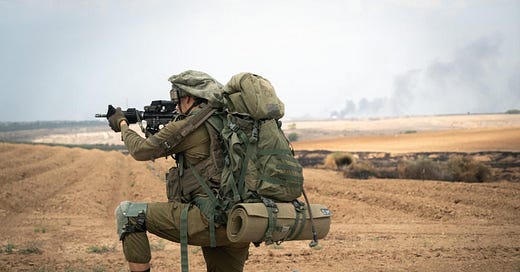




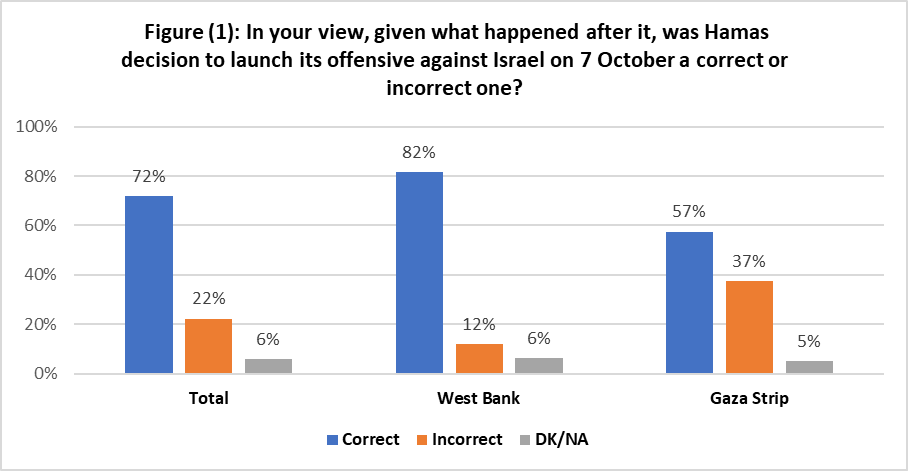




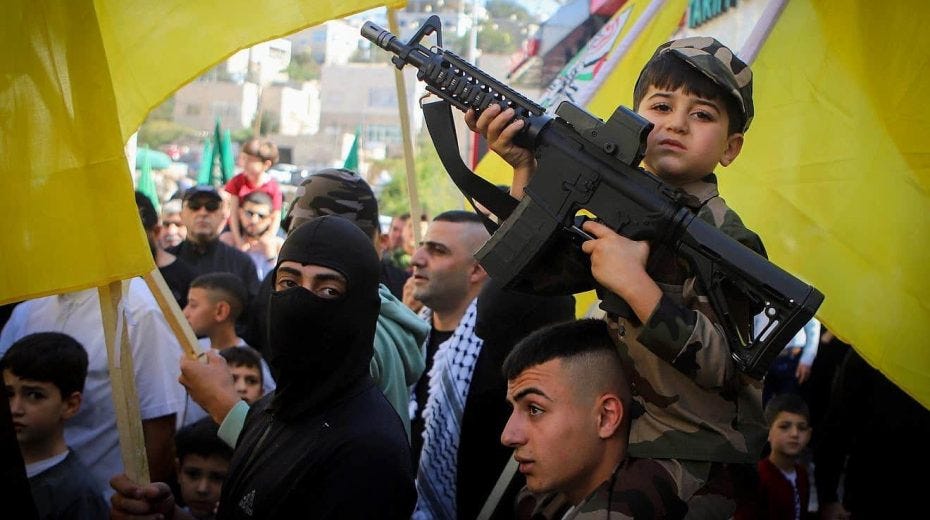
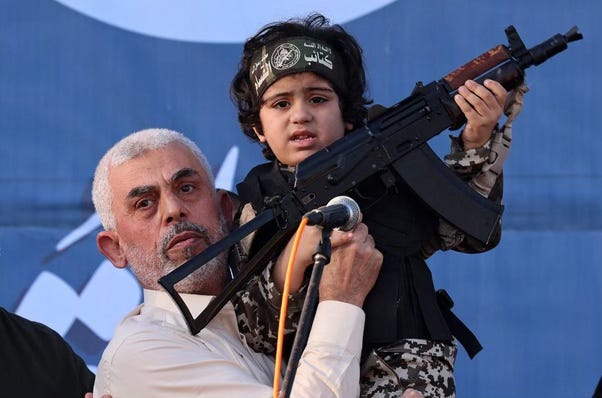






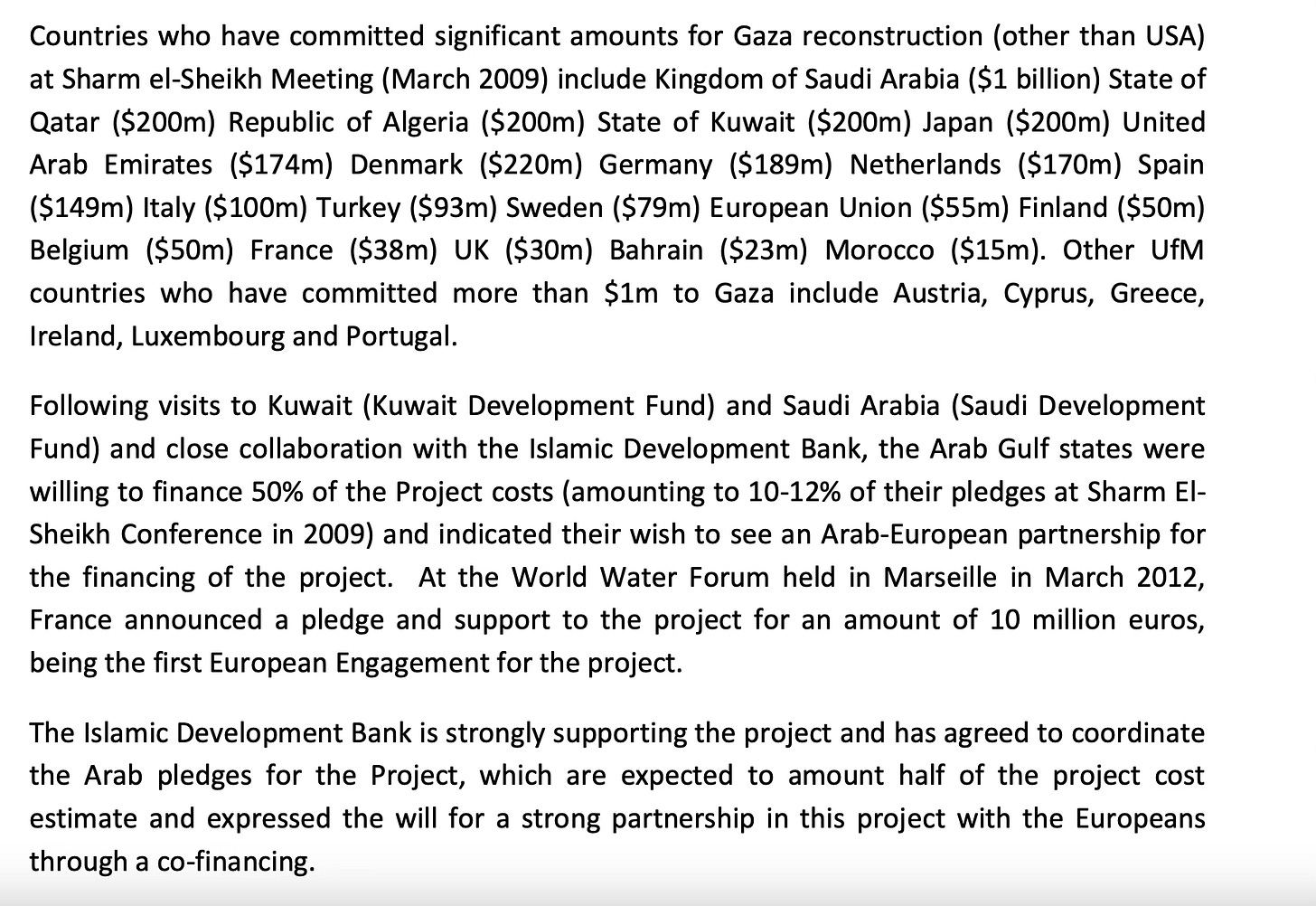














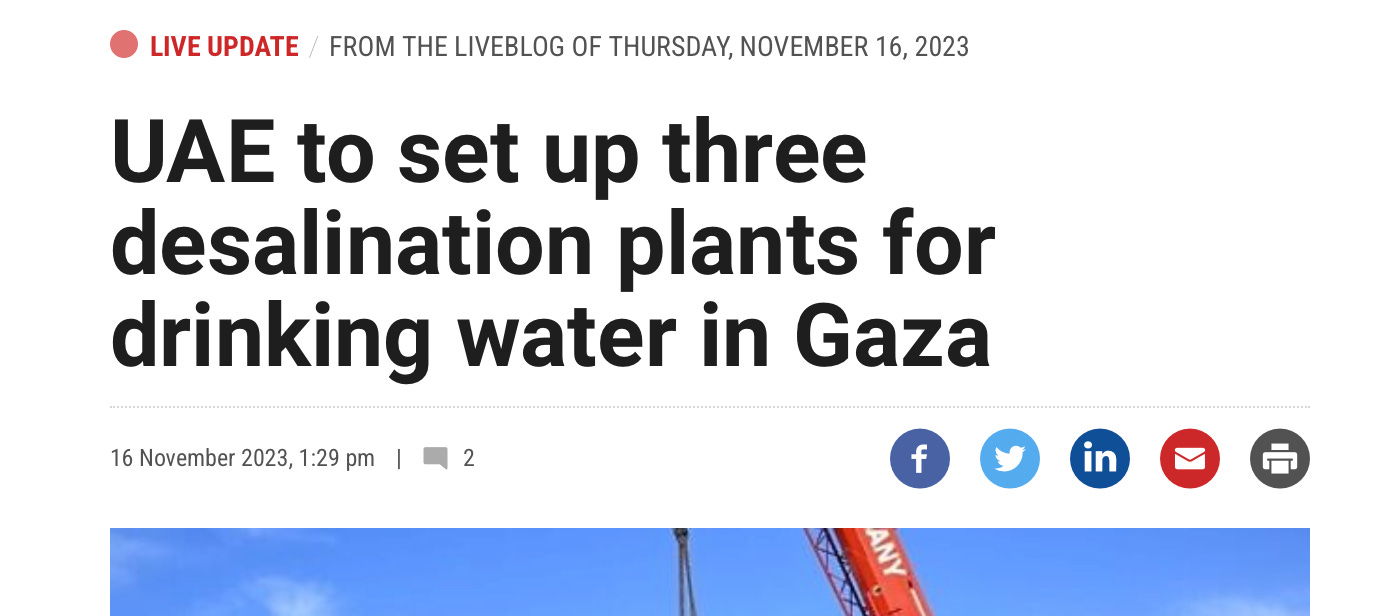



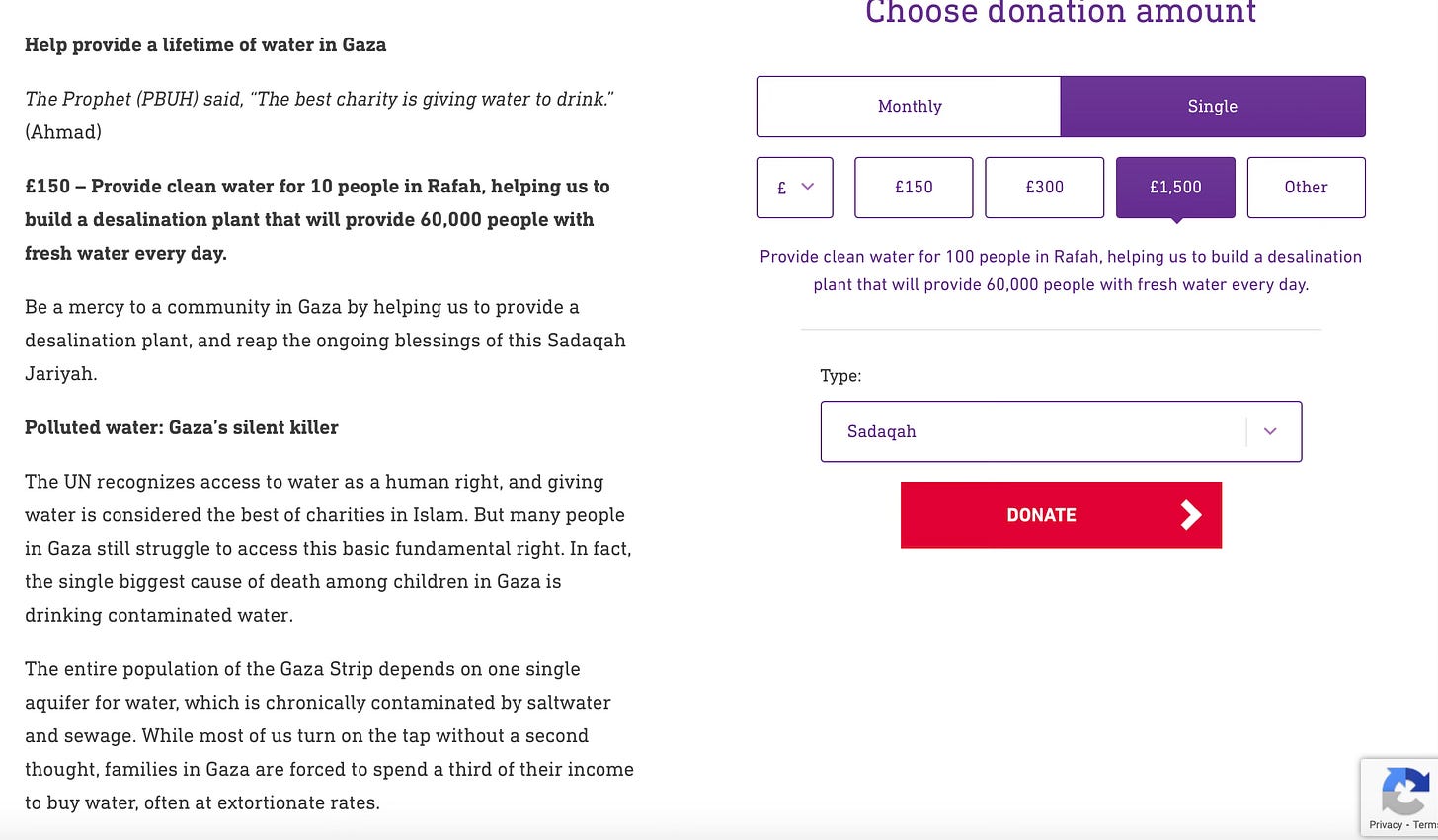

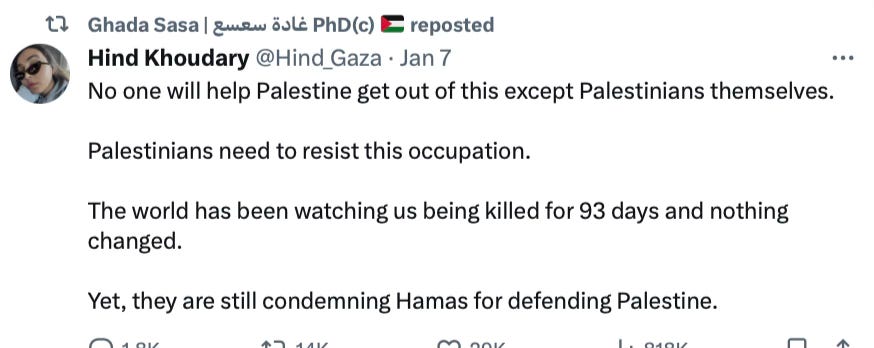
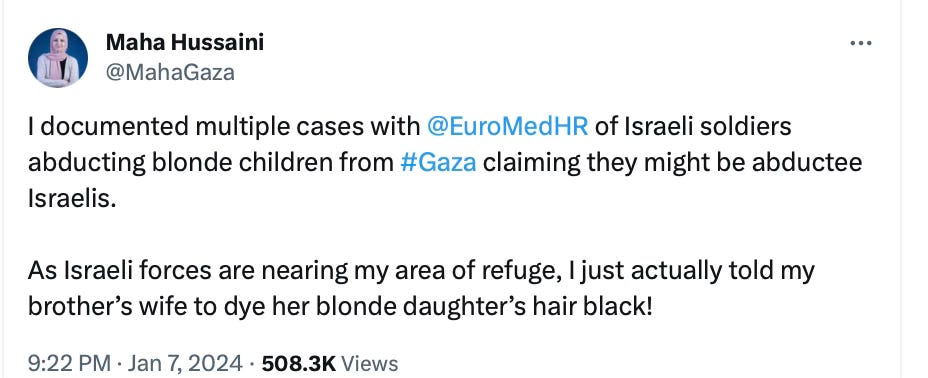

This is the most stimulating, mind-overhauling shit i have read in a COON's age! I don't even know what a coon is but maybe it's a wsy of comng to know what sort of COINAGE your mind is actually forged in!
On "Does Hamas Represent..." --thank you for this and well done. I think this is the most comprehensive and honest look at the question I've seen. Would love to be able to publicly share just that one essay. It's an important topic that obviously arouses heated opinions over here.